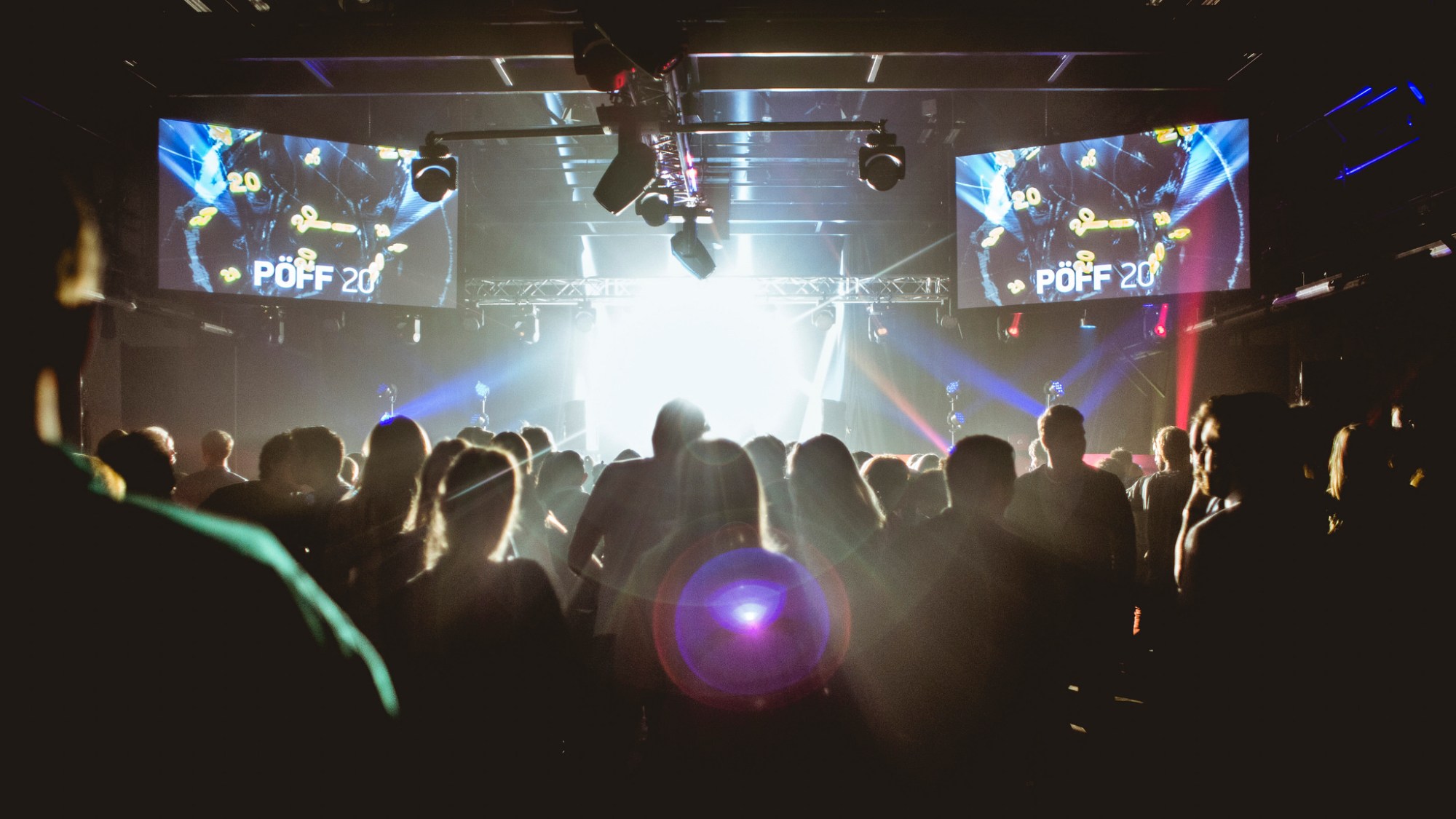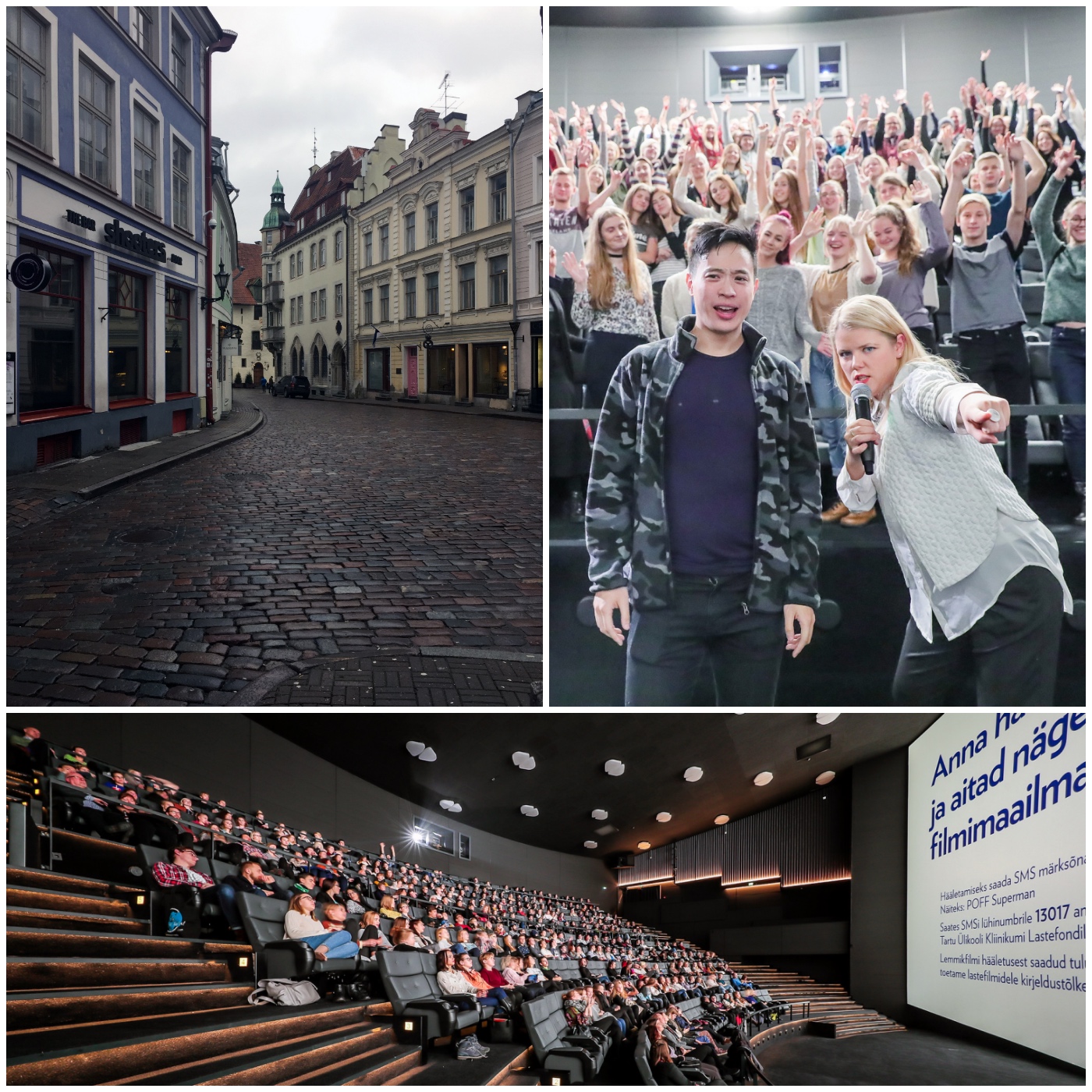
- Festivals
Tallinn Black Nights Film Festival: A Film Culture Blossoms In The Thawing North
The official name of the Tallinn International Film Festival (PÖFF), is Black Nights an accurate moniker indeed for a festival taking place in a city which in November enjoys a scant 8 hours of light per day. “ideal conditions for watching a lot of movies” according to the organizers which like all Estonians seem to have a knack for putting the best possible face on a climate that can be less than forgiving.
That is a useful skill in this small Baltic republic, twice the size of New Jersey with a total population equal more or less to that of San Diego. Like its neighbors to the South, Latvia and Lithuania Estonia, a crossroads of many Baltic and Germanic people including early Viking tribes, has had a turbulent history, including alternating centuries-long occupations by Russia and Germany. The latest, that by the Soviet Union following the second world war. Estonia regained its independence only in 1991.
Since then the tiny republic has made a concerted effort towards reforms, modernization and economic development which have turned it into a country that feels altogether Scandinavian despite its Eastern heritage. To give one example Estonia considers free universal internet access a “human right” of every citizen and the ubiquitous coverage – and blazing connection speeds – over its entire territory put most other country’s to shame.
Culture has also been a priority in closing the isolation gap and a central part of that concerted effort is the film festival. PÖFF, now in its twentieth year runs for two weeks in November and has, since 2013 achieved an “A” classification – one of 14 international festivals worldwide – including Cannes, Venice and Berlin – to enjoy the top rating from the International Federation of Film Producers Associations (FIAPF).
The festival thus showcases the required number of world and regional premieres in several distinct sections. A main competition and 2 other International competitions, including one for first time film makers. In addition it features a section for shorts and sidebars devoted to youth films and animated movies. This year that amounted to a program of 260 films and 400 shorts from 70 countries
Under the two-decade stewardship of tireless festival director Tiina Lokk, Tallinn is today a first-class film showcase, and an increasingly popular stop on the international film and film making community. The festival also includes a week-long Industry symposium (Industry@Tallinn), part of the concerted commitment to make film a cornerstone of the country’s cultural identity. That includes a half dozen production houses, skilled film crews, a generous program of incentives and rebates administered by the Estonian Film Institute and the Baltic’s only film academy. A film commission promotes the country’s varied locations and construction is slated to begin soon on a permanent studio facility.
Estonia also puts a premium on co-productions and the efforts have paid off, witness recent successes like the Foreign Language Golden Globe nomination garnered by Zaza Urushadze Tangerines (2014), an Estonian-Georgian collaboration, followed the following year by the Finnish-Estonian The Fencer by Klaus Härö which was the Finnish selection for the Academy Awards but told the story of an Estonian fencing coach and was filmed in the evocative seaside resort of Haapsalu, near Tallinn. Ivo Felt, the veteran producer who had a hand in both productions credits PÖFF with contributing to the critical mass of the nascent local film culture.
The intimate scale of the festival affords the opportunity to connect personally with film makers in a away that can be difficult in more established festival-tour venues . Between screenings, producers, directors, journalists and fans congregate in the many haunts of the irresistibly charming Old Town or at the wine bar of the Hotel Nordic where talk invariably turns to the films.
This year those included an out-of-competition European premiere of Kelly Fremon Craig’s The Edge of Seventeen in Tallinn’s Imax (cleverly disguised inside a refurbished soviet-era theater). Helped by the US Ambassador to Estonia, one of the film’s stars, Hayden Szeto, introduced the Sony comedy to an enthusiastic (and appropriately young) audience who seemed more than attuned to every high-school nuance of the plot.

Scenes from those black Estonian nights (clockwise from top): Tallinn's beautiful historic center; Edge of Seventeen star Hayden Szeto meets the locals; the audience at the Tallinn Imax.
©Black Nights Film Festival
Tallinn is also an ideal vantage point from which to take in new cinema from Eastern Europe. This year entries included Pirko from Czech/Slovakian couple Petr and Lucia Svoboda, an unflinching look at the epidemic of child exploitation and prostitution in ex-communist countries to which authorities often turn a blind eye. And on a lighter note, Eastern Business from Moldovan director Igor Kobileanski, is a bittersweet farce on the entrenched bureaucracies and mindsets that still inform many Eastern European countries.
Another black comedy is Mother by Kadri Kõusaar, Estonia’s own entry in this year’s Globe and Oscar sweepstakes while Chronicles of Melanie by Viesturs Kairišs, from neighboring Latvia, is a black and white telling of the bloody Stalinist purges during which thousands of citizens were deported from the Baltic states often never to return from brutal exile in the Siberian Taiga.
Also in Tallinn was Neapolitan director Stefano Amatucci , with his dystopian near-science fiction drama Caina which imagines a female Blade Runner-type character tasked with the macabre recycling of cadavers from the beaches near Naples. An almost Shakespearean treatment of the European immigrant crisis ever more looming in Italian cinema and literature.
All competition films were judged by a six-member jury including British-Italian producer Uberto Pasolini, Finnish actress Laura Birn and Hollywood composer William Goldstein (Fame, The Miracle Worker) who also somehow found the time to regale festival-goers with an impromptu piano concert in the historic Tallinn Town hall – a fittingly Estonian highlight to the Baltic “Dark Nights” of Film.

